In the following article, we examine the top 40 best affordable American Sign Language degree programs. Earning a bachelor’s in ASL opens up the door to many different careers as almost any field or workplace can benefit from hiring an employee who is fluent in ASL. Undergraduates looking to study this versatile area can typically choose from two different tracks: ASL language and Deaf culture/community or and ASL/English interpretation. While most ASL degrees are offered only on-campus, there are a select few that are available online. Keep reading to learn more about this field and to begin learning about the top 40 best affordable American Sign Language degree programs.
Methodology
To provide our readers with a comprehensive list of the best affordable American Sign Language degree programs, we awarded points to the following 40 schools based on three metrics related to affordability, class size, and student success. We decided on these 40 institutions by first searching for American Sign Language bachelor’s degrees using the College Navigator tool at the National Center for Education Statistics (NCES). Since the search yielded 40 schools that matched our keyword phrase, we did not need to narrow down the list any further.
Average Cost of Attendance
Since this ranking is based on affordability, it goes without saying that we would award points based on the average cost of attendance. Although we understand the temptation to want to choose the cheapest program to save money, make sure that the school you are thinking offers more than just a low-cost ASL program. Are there opportunities for internships or real-world learning? Are there any extracurriculars or student clubs in the field of ASL that you can join? For this ranking, we awarded points based on the cost of one academic year of study for an in-state student using data provided by the NCES. We also provided rates for out-of-state students as well, though we did not use these figures to award points.
Points:
Under $7,500: 5 points
$7,500 to $15,000: 3 points
$15,001 and above: 1 point
Student-to-Faculty Ratio
Next, we looked at each school’s student-to-faculty ratio and used this number as a window into class size. In most cases, universities with high ratios tend to provide larger classes, while colleges with low ratios are known for smaller academic environments. Ask yourself whether you need more accountability or whether you would like to get to know your peers and professors on a one-on-one basis. If so, a smaller school might be ideal. If you prefer to blend into the background, you might thrive better in a larger setting. Although there are pros and cons to each, for this article, we awarded the highest number of points to schools with the lowest ratios based on the following ranges from NCES.
Points:
10:1 or less: 3 points
11:1 to 15:1: 2 points
Greater than 15:1: 1 point
Graduation Rate
Finally, we looked at graduation rates to help prospective undergraduates determine whether a school is producing content and successful students. In other words, graduation rates can be used to measure student satisfaction and success. Schools with high rates are keeping their students happy, so they are more likely to stay enrolled, complete their course requirements, and earn their degrees. On the other hand, unhappy students might leave one school and finish their degrees somewhere else. Student dissatisfaction could be caused by any number of reasons such as inexperienced faculty, unaffordable programs, or poor academic support. Therefore, we awarded the most points to schools with the highest graduation rates, according to NCES.
Points
More than 50 percent: 3 points
Between 30 percent and 50 percent: 2 points
Less than 30 percent: 1 point
Ranking Top 40 Best Affordable American Sign Language Degree Programs
40. Liberty University
Lynchburg, Virginia

Points: 4
Program Website
Liberty University is a private Christian university that was established in 1971 as Lynchburg Baptist College. One of the largest Christian universities in the world, LU offers an affordable American Sign Language degree in the form of a high-value Bachelor of Arts in American Sign Language and Interpreting. The program teaches students how to bridge cultural and communication gaps as professional sign language interpreters. The curriculum involves coursework in Deaf studies, American Sign Language, and ASL linguistics. Students also examine the theory and application of fingerspelling and numbers. Beyond the classroom, LU offers practicum experiences and internships with Liberty University Interpreting Services, the school’s own interpreting service agency, as well as other locations across the U.S.
Degree Options:
B.A. in American Sign Language & Interpreting
In-State Tuition: $22,584
Out-of-State Tuition: $22,584
Student-to-Faculty Ratio: 18:1
Graduation Rate: 50 percent
39. MacMurray College
Jacksonville, Illinois
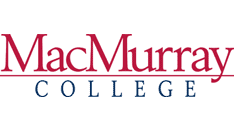
Points: 5
Established as the Illinois Conference Female Academy in 1846, MacMurray College is a private institution of higher education and one of the most affordable colleges for an American Sign Language degree. Students can choose from either a low-cost bachelor’s degree in Deaf community services or a bachelor’s degree in sign language interpreting. The curriculum allows students to become proficient in American Sign Language, develop entry-level interpreting skills, and demonstrate knowledge of Deaf culture. Beyond the classroom, MacMurray students can choose to volunteer, intern, work, or live at the nearby Illinois School for the Deaf.
Degree Options:
Bachelor’s Degree in Sign Language Interpreting
Bachelor’s Degree in Deaf Community Services
In-State Tuition: $27,710
Out-of-State Tuition: $27,710
Student-to-Faculty Ratio: 13:1
Graduation Rate: 42 percent
38. North Central University
Minneapolis, Minnesota

Points: 5
Program Website
Established in 1930, North Central University is a Christian liberal arts university affiliated with the Assemblies of God. Students seeking a low-cost American Sign Language degree can pursue NCU’s high-value Bachelor of Arts in American Sign Language Interpreting. The program requires 124 credit hours of study and features two separate areas of study: an interpreting core and a Deaf studies core. Topics covered include interpreting theory and practice, trends in interpreting, social and cultural implications of Deaf history, and human relations. Students complete a senior project and an interpreting internship before graduating.
Degree Options:
Bachelor of Arts in American Sign Language Interpreting
In-State Tuition: $24,240
Out-of-State Tuition: $24,240
Student-to-Faculty Ratio: 17:1
Graduation Rate: 54 percent
37. Mount Aloysius College
Cresson, Pennsylvania

Points: 5
Program Website
Mount Aloysius College is a private institution of higher education affiliated with the Roman Catholic Church. Established in 1853 by the Sisters of Mercy, MAC offers an affordable bachelor’s degree in American Sign Language and English interpreting that is accredited by the Commission on Collegiate Interpreter Education (CCIE). The curriculum teaches students how to communicate within two different languages and cultures. MAC offers an effective learning environment with small classes as well as interactive, high-tech ASL computer labs. Beyond the classroom, the school provides opportunities for majors to participate in weekly lunches with the Deaf community, monthly social gatherings with members of the area’s Deaf community, and a biennial student-run interpreting conference.
Degree Options:
American Sign Language & English Interpreting
In-State Tuition: $23,110
Out-of-State Tuition: $23,110
Student-to-Faculty Ratio: 11:1
Graduation Rate: 45 percent
36. Clemson University
Clemson, South Carolina

Points: 5
Program Website
Established in 1889 as Clemson Agricultural College of South Carolina, Clemson University is a public land-grant research university and a top choice for students seeking a cost-effective American Sign Language degree. At Clemson University, undergraduates can pursue a low-cost Bachelor of Arts in World Languages degree with a concentration in ASL. A key partner in the ASL program is the ASL Student Club. Here, students meet regularly and organize socials, guest lectures, and events to bring together Clemson ASL students and the Deaf community. An 18-credit-hour ASL-English educational interpreting program in the form of an undergraduate specialist certificate is also available.
Degree Options:
Bachelor of Arts Degree in Modern Languages With a Concentration in ASL
ASL-English Educational Interpreting Program
In-State Tuition: $15,374
Out-of-State Tuition: $37,128
Student-to-Faculty Ratio: 16:1
Graduation Rate: 83 percent
35. Lamar University
Beaumont, Texas
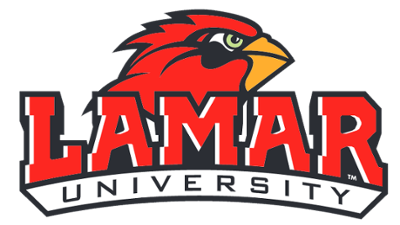
Points: 5
Program Website
Lamar University is a public university and a member of the Texas State University System. Established in 1923, Lamar is also recognized as one of the most affordable universities for an American Sign Language degree. The school’s low-priced Bachelor of Arts in American Sign Language features three separate tracks for interpreting, teaching, and advocacy. The interpreting track prepares students for careers in ASL interpreting, the education track prepares students to teach in the EC-12 classroom, and the advocacy track prepares students for careers in advocacy in which they work with deaf individuals. Program techniques include the use of digital video technology, lab activities, research, community interaction, and both bilingual-bicultural comparison classes and immersion.
Degree Options:
B.A. in American Sign Language
In-State Tuition: $8,373
Out-of-State Tuition: $18,333
Student-to-Faculty Ratio: 18:1
Graduation Rate: 27 percent
34. Maryville College
Maryville, Tennessee
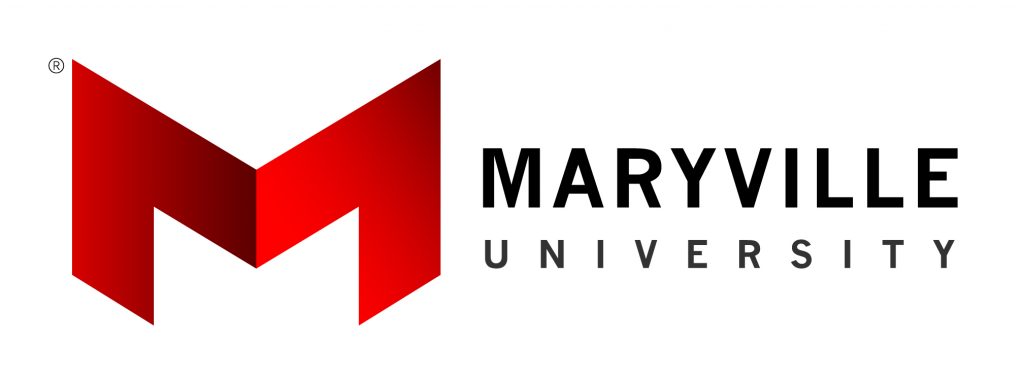
Points: 6
Program Website
Established in 1819, Maryville College is a private liberal arts college affiliated with the Presbyterian Church and the 12th-oldest institution of higher education in the South. Maryville students looking for an economical American Sign Language degree can pursue a high-value Bachelor of Arts in American Sign Language and Deaf Studies. The curriculum emphasizes Deaf culture, the creative expression and structure of the language, and the development of fluency of ASL. On-campus resources include ASL and interpreting labs that provide one-on-one work with nationally certified interpreting mentors and Sigma Lambda Kappa, a campus organization that provides opportunities for students to become involved in the Deaf community. Maryville also offers a major in ASL-English Interpreting for students looking to become ASL interpreters.
Degree Options:
B.A. in American Sign Language and Deaf Studies
In-State Tuition: $34,880
Out-of-State Tuition: $34,880
Student-to-Faculty Ratio: 12:1
Graduation Rate: 55 percent
33. Goshen College
Goshen, Indiana
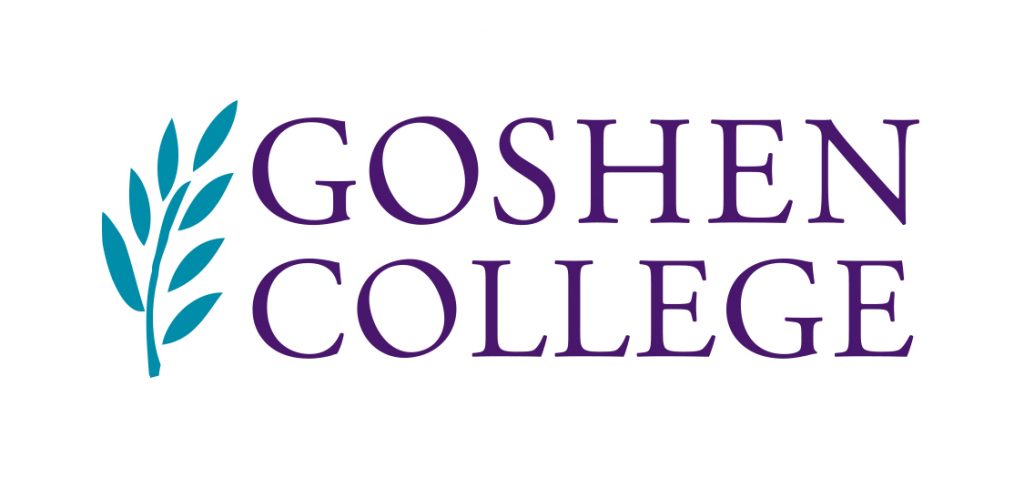
Points: 6
Program Website
Founded in 1894 as the Elkhart Institute of Science, Industry and the Arts, Goshen College is a private liberal arts college. Students looking for a high-value American Sign Language degree can pursue several options at Goshen. First, the inexpensive sign language interpreting major prepares students for careers as professional sign language interpreters. Coursework examines ASL and Deaf history, ethics, and interpretation. Other areas of study include transliterating with a focus on educational interpreting, sign-to-voice interpreting, and medical interpreting. Goshen also offers an American Sign Language education major that prepares students to teach ASL as a language option to hearing students at the high school and middle school levels. Students take ASL classes and education classes. They also spend a semester studying at Gallaudet University in DC.
Degree Options:
Sign Language Interpreting Major
American Sign Language Education Major
In-State Tuition: $33,700
Out-of-State Tuition: $33,700
Student-to-Faculty Ratio: 11:1
Graduation Rate: 68 percent
32. Gardner-Webb University
Boiling Springs, North Carolina

Points: 6
Gardner-Webb University is a private Baptist university that was founded as Boiling Springs High School in 1905, making it the youngest Baptist-affiliated university in the state. GWU offers an affordable Bachelor of Arts in American Sign Language that prepares students for careers in communicating with hard-of-hearing and deaf individuals. Students complete 36 credit hours for the major as well as a capstone project. Beyond the classroom, students may join the Deaf Club to promote deaf awareness and assistance for the Deaf community. Other extracurriculars include ASL-based international mission trips, the ASL Table, and Joyful Hands, a ministry team sign language choir. After graduation, students earn an advanced or higher on the Sign Language Proficiency Interview (SLPI).
Degree Options:
Bachelor of Arts in American Sign Language (ASL)
In-State Tuition: $32,000
Out-of-State Tuition: $32,000
Student-to-Faculty Ratio: 11:1
Graduation Rate: 53 percent
31. Madonna University
Livonia, Michigan
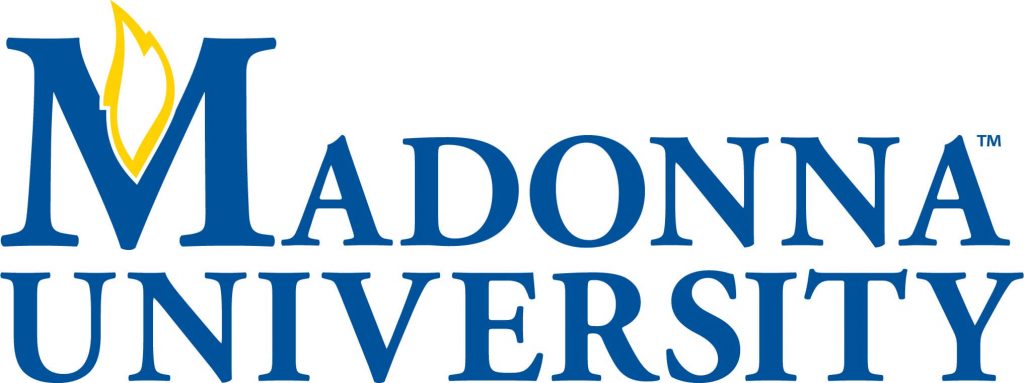
Points: 6
Program Website
Established in 1937, Madonna University is a private Catholic liberal arts institution of higher education. The school offers a best-value American Sign Language degree in the form of a best-value Bachelor of Arts in Sign Language Interpreting. The program allows students to develop ASL skills as well as an understanding of the language and the Deaf community. The curriculum is divided into major prerequisites, major core courses, interpreting classes, and recommended support courses. Through extensive practice and training over four years, students prepare to become professional ASL interpreters. Madonna University also offers related sign language degrees in ASL education and Deaf studies.
Degree Options:
Bachelor of Arts: Sign Language Interpreting
In-State Tuition: $21,900
Out-of-State Tuition: $21,900
Student-to-Faculty Ratio: 12:1
Graduation Rate: 61 percent
30. Gallaudet University
Washington, DC
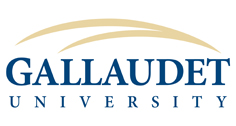
Points: 6
Program Website
Gallaudet University is a private institution of higher learning for the education of the deaf and hard-of-hearing. Founded in 1864, Gallaudet University was initially a grammar school for both blind and deaf children. It was the first institution of advanced education for deaf and hard-of-hearing students in the world. Today, it is the only university in which all services and programs are designed to accommodate these students. Gallaudet provides an affordable American Sign Language degree in the form of a Bachelor of Arts in American Sign Language. Students complete 120 hours of study in areas like ASL instruction, ASL research, ASL data analysis and applications, Deaf culture, and sign language rights and advocacy. Gallaudet also offers a traditional B.A. in Deaf Studies and a B.A. in Deaf Studies degree-completion program.
Degree Options:
B.A. in American Sign Language
In-State Tuition: $17,038
Out-of-State Tuition: $17,038
Student-to-Faculty Ratio: 6:1
Graduation Rate: 47 percent
29. University of New Hampshire at Manchester
Manchester, New Hampshire

Points: 6
Program Website
Founded in 1985, the University of New Hampshire at Manchester is a public institution of higher education and a member of the University of New Hampshire System. Recognized as one of the most affordable universities for an American Sign Language degree, UNH Manchester offers a low-cost Bachelor of Science in ASL/English Interpreting. The program is one of only 14 accredited degrees of its kind in the U.S. The curriculum is divided into culture and linguistics courses, language courses, and interpreting classes. Students must complete 64 credits in the major, including a capstone experience, to earn their degree.
Degree Options:
ASL/English Interpreting Major (B.S.)
In-State Tuition: $15,265
Out-of-State Tuition: $30,635
Student-to-Faculty Ratio: 10:1
Graduation Rate: 41 percent
28. University of Northern Colorado
Greeley, Colorado

Points: 6
Program Website
Founded as the State Normal School of Colorado in 1889, the University of Northern Colorado is a public research university with a history of teacher education. Undergraduates looking for an affordable degree in American Sign Language can pursue a high-value Bachelor of Arts in American Sign Language-English Interpretation at UNC. The four-year program is accredited by the Commission on Collegiate Interpreter Education and developed around 34 performance standards related to theory and knowledge, professionalism, interpreting skills, language skills, and human relations. Students complete 120 credits of study and can choose from two majors: educational interpreting and community interpreting.
Degree Options:
Bachelor of Arts in American Sign Language-English Interpretation
In-State Tuition: $9,918
Out-of-State Tuition: $21,786
Student-to-Faculty Ratio: 17:1
Graduation Rate: 47 percent
27. University of Wisconsin-Milwaukee
Milwaukee, Wisconsin
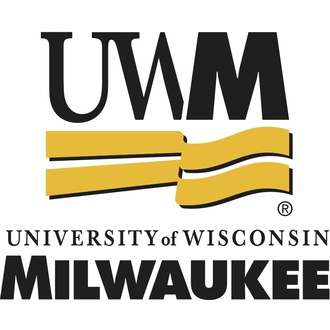
Points: 6
Program Website
The University of Wisconsin-Milwaukee is a public research university and a member of the University of Wisconsin System. Established in 1885 as Milwaukee Normal School, UWM offers the only four-year bachelor’s degree for ASL interpreting in Wisconsin. The inexpensive degree program’s curriculum aligns with standards set by the Commission on Collegiate Interpreter Education. Undergraduates complete courses in interpreting and delve into interpretation in different settings. This includes interpreting in K-12 institutions and post-secondary schools. Other areas of focus include video relay interpreting and mental health interpreting. Students complete 121 credits of study and they are encouraged to round out their degree with a Cultures & Communities Certificate.
Degree Options:
ASL/English Interpreting – Undergraduate Degree
In-State Tuition: $9,588
Out-of-State Tuition: $20,867
Student-to-Faculty Ratio: 18:1
Graduation Rate: 44 percent
26. University of Arkansas at Little Rock
Little Rock, Arkansas

Points: 6
Program Website
Founded in 1927 as Little Rock Junior College, the University of Arkansas at Little Rock is a public research university and a solid choice for undergraduates seeking a top-value American Sign Language degree. UA Little Rock offers a cheap Bachelor of Arts in Interpretation: ASL/English that consists of 102 hours of study in the major as well as an 18-hour minor in educational interpreting. Areas of study include ASL, fingerspelling, Deaf culture, interpreting and interpreting research, and advanced transliteration. Once students complete all university core, interpretation, and minor courses, they are required to participate in an internship.
Degree Options:
Bachelor of Arts in Interpretation: ASL/English
In-State Tuition: $9,544
Out-of-State Tuition: $21,754
Student-to-Faculty Ratio: 12:1
Graduation Rate: 39 percent
25. Utah State University
Logan, Utah
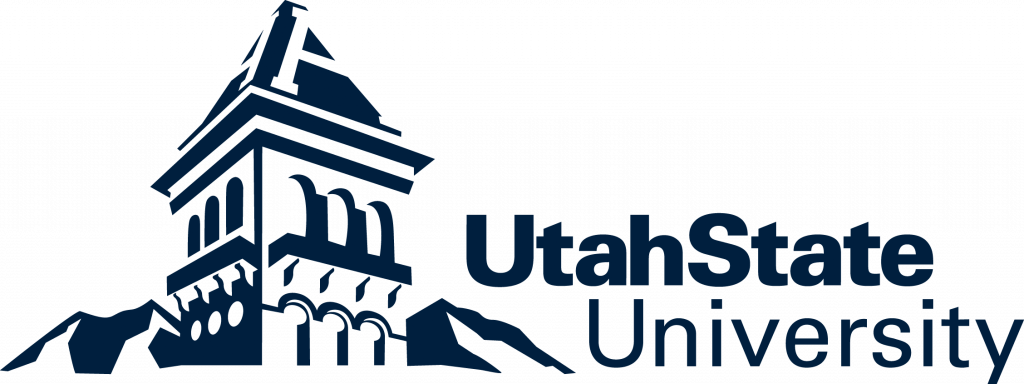
Points: 6
Program Website
Utah State University is a public research university and Utah’s largest public residential campus by enrollment. Established as Utah’s agricultural college in 1888, USU offers an economical associate-to-bachelor’s degree-completion program in communication disorders and deaf education. After earning an Associate of Applied Science or Associate of Science in American Sign Language Interpreting, undergraduates can complete an additional 40 credit hours of study and earn a Bachelor of Science degree. The curriculum builds on interpreting skills to prepare future professionals for careers as ASL interpreters. The program is available entirely online, and students can enroll on a part- or full-time basis.
Degree Options:
Associate-to-Bachelor’s Degree (BS) in Communication Disorders and Deaf Education
In-State Tuition: $8,138
Out-of-State Tuition: $22,316
Student-to-Faculty Ratio: 20:1
Graduation Rate: 50 percent
24. University of Rochester
Rochester, New York

Points: 7
Program Website
Established in 1850, the University of Rochester is a private research university and one of the most affordable universities for an American Sign Language degree. UR offers a high-value four-year major in American Sign Language that is comprised of 12 classes: eight electives and four core courses. Areas of study include linguistics and psycholinguistics, ASL literature and culture, the structure of signed languages, intermediate ASL, and advanced ASL. Faculty members pursue interdisciplinary research through the Department of Linguistics, the Department of Brain and Cognitive Sciences, and the Center for Language Sciences. Graduates are prepared for careers in counseling, research, interpreting, law, medicine, and Deaf education.
Degree Options:
American Sign Language (ASL) Major
In-State Tuition: $53,909
Out-of-State Tuition: $53,909
Student-to-Faculty Ratio: 10:1
Graduation Rate: 86 percent
23. St. Catherine University
St. Paul, Minnesota
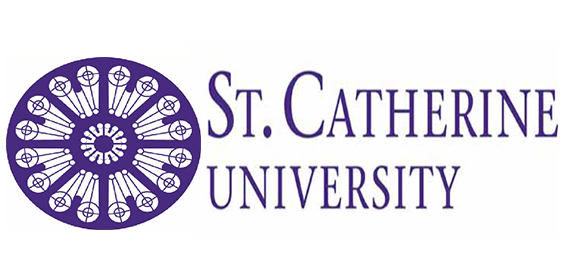
Points: 7
Program Website
St. Catherine University is a private liberal arts college affiliated with the Roman Catholic Church. Established as the College of St. Catherine, one of the first post-secondary institutions for women in the Midwest, St. Kate’s offers an affordable bachelor’s degree in American Sign Language. The curriculum requires 32 credits of study per year for four years. Topics of focus include fingerspelling, American Deaf culture, conversational ASL, healthcare interpreting, and educational interpreting. An internship is also required for graduation. St. Catherine University’s Department of American Sign Language and Interpreting is accredited by the Commission on Collegiate Interpreter Education.
Degree Options:
American Sign Language
In-State Tuition: $39,554
Out-of-State Tuition: $39,554
Student-to-Faculty Ratio: 10:1
Graduation Rate: 56 percent
22. Keuka College
Keuka Park, New York

Points: 7
Program Website
Keuka College is a private college that emphasizes career and pre-professional education as well as experiential learning. Founded in 1890, Keuka College offers an affordable Bachelor of Arts in American Sign Language that focuses on direct instruction in the language as well as immersion into Deaf culture. Classes foster an understanding of ASL/Deaf history, culture, linguistics, and literature. In addition to completing coursework, students benefit from internships and other hands-on learning experiences in which they can apply what they have learned outside the classroom. The school’s proximity to nearby Rochester, home to the largest population of deaf residents per capita in the U.S., provides additional opportunities for ASL majors.
Degree Options:
American Sign Language (B.A.)
In-State Tuition: $32,044
Out-of-State Tuition: $32,044
Student-to-Faculty Ratio: 8:1
Graduation Rate: 53 percent
21. William Woods University
Fulton, Missouri

Points: 7
Program Website
William Woods University is a private institution of higher education that was founded as the Female Orphan School in 1870. Students looking for an affordable online American Sign Language degree can pursue WWU’s low-cost online Bachelor of Science in Interpretation Studies in ASL-English. The program is designed for students who have earned an associate degree in interpreting as well as for working interpreters who hold certification but who want to earn a bachelor’s degree. The curriculum provides a greater understanding of Deaf culture, and students learn how to interpret legal, mental health, medical, and other specialties. After completing the program, graduates are eligible to sit for National Interpreter Certification (NIC) administered by the Center for the Assessment of Sign Language Interpretation (CASLI).
Degree Options:
Online Bachelor of Science in Interpretation Studies in ASL-English Degree
In-State Tuition: $24,110
Out-of-State Tuition: $24,110
Student-to-Faculty Ratio: 10:1
Graduation Rate: 58 percent
20. Montclair State University
Montclair, New Jersey

Points: 7
Program Website
Montclair State University is a public research university that was established in 1908 as New Jersey State Normal School at Montclair. An affordable, accredited university for an American Sign Language degree, MSU offers a low-priced Bachelor of Arts in Linguistics with a concentration in American Sign Language/English interpreting. Through a rigorous curriculum, undergraduates develop a sizeable vocabulary, learn the basic structures of ASL, and gain the ability to participate in conversations. Students also gain a grounding in ASL components ranging from discourse and meaning to sound and sign. Graduates are prepared for careers as ASL interpreters, teachers, and speech-language pathologists.
Degree Options:
BA in Linguistics With a Concentration in American Sign Language/English Interpreting
In-State Tuition: $12,790
Out-of-State Tuition: $20,578
Student-to-Faculty Ratio: 17:1
Graduation Rate: 71 percent
19. Bloomsburg University
Bloomsburg, pennsylvania
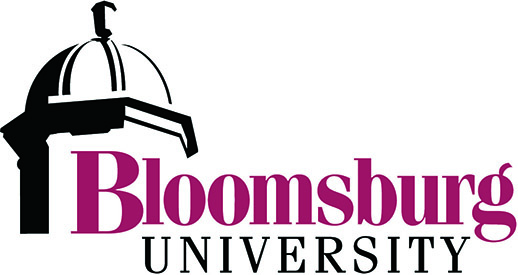
Points: 7
Program Website
The Bloomsburg University of Pennsylvania, known simply as Bloomsburg University, is a public institution of higher education and a member of the Pennsylvania State System of Higher Education (PASSHE). Established in 1839, BU offers an affordable American Sign Language/English Interpreting program that is accredited by the Commission on Collegiate Interpreter Education. One of just two four-year ASL/English interpreting programs in the eastern U.S., the program consists of six semesters of ASL courses in which students are exposed to Deaf culture and the linguistics of ASL. They also receive specialized interpreter training via courses in transliteration, translation, and both simultaneous and consecutive interpreting. A seminar and practicum experience are also required for graduation.
Degree Options:
American Sign Language/English Interpreting
In-State Tuition: $10,958
Out-of-State Tuition: $22,782
Student-to-Faculty Ratio: 19:1
Graduation Rate: 60 percent
18. The University of Texas at Austin
Austin, Texas

Points: 7
Program Website
Established in 1881, the University of Texas at Austin is a public research university and the flagship institution of the University of Texas System. UT Austin’s Department of Linguistics confers an affordable American Sign Language degree program that not only offers best-value ASL language instruction but also provides advanced training in research on the linguistics of signed languages. Students complete core university requirements as well as four upper-division ASL-focused courses that focus on advanced ASL conversation, signed languages and signing communities, ASL literature and Deaf culture, and an undergraduate research experience conducted in the UT Signed Language Research Lab.
Degree Options:
American Sign Language (ASL) Program
In-State Tuition: $10,610
Out-of-State Tuition: $37,580
Student-to-Faculty Ratio: 18:1
Graduation Rate: 83 percent
17. Kent State University
Kent, Ohio

Points: 7
Program Website
Established in 1910 as a teacher-training school, Kent State University is a public research university and one of the most affordable universities for an American Sign Language degree. KSU offers a low-cost Bachelor of Arts in American Sign Language that presents ASL as a community- and culture-based language that interacts with other world languages. The high-value degree program implements techniques like lab activities, research, community interaction, bilingual-bicultural comparison classes, and the use of digital video technology. Students not only gain proficiency in ASL but they also learn how to network within the professional community and earn validity within the Deaf community.
Degree Options:
B.A. in American Sign Language
In-State Tuition: $10,312
Out-of-State Tuition: $19,014
Student-to-Faculty Ratio: 20:1
Graduation Rate: 60 percent
16. Western Oregon University
Monmouth, Oregon

Points: 7
Program Website
Western Oregon University is a public institution of higher education and an affordable university for an American Sign Language Degree. Founded in 1856, WOU offers a cheap Bachelor of Arts in American Sign Language Studies that promotes respect for the Deaf community, Deaf history, and Deaf culture. The curriculum allows students to hone their ASL skills while also studying areas like mental health, cultural competence, language acquisition, and linguistics. Students also examine how this information can help the Deaf population. Students must complete 60 credits for the major beyond second-year ASL coursework. Graduates are prepared for careers in Deaf education, Deaf rehabilitation counseling, consulting, interpreting, and research.
Degree Options:
Bachelor of Arts in American Sign Language Studies
In-State Tuition: $10,197
Out-of-State Tuition: $26,421
Student-to-Faculty Ratio: 14:1
Graduation Rate: 40 percent
15. Indiana University-Purdue University-Indianapolis
Indianapolis, Indiana

Points: 7
Program Website
Indiana University-Purdue University-Indianapolis is a public research university that was established in 1969. The school is a core campus of Indiana University that also provides academic degrees from Purdue University. IUPUI confers an affordable Bachelor of Science in American Sign Language/English Interpreting that prepares graduates to become entry-level ASL community interpreters. The curriculum includes coursework in the theory and process of interpreting, interpreting discourse, text analysis, the linguistics of ASL, and the culture and history of the American Deaf community. A 15-week hands-on practicum experience is also required for graduation.
Degree Options:
Bachelor of Science in American Sign Language/English Interpreting
In-State Tuition: $9,465
Out-of-State Tuition: $29,821
Student-to-Faculty Ratio: 15:1
Graduation Rate: 47 percent
14. Georgia State University
Atlanta, Georgia
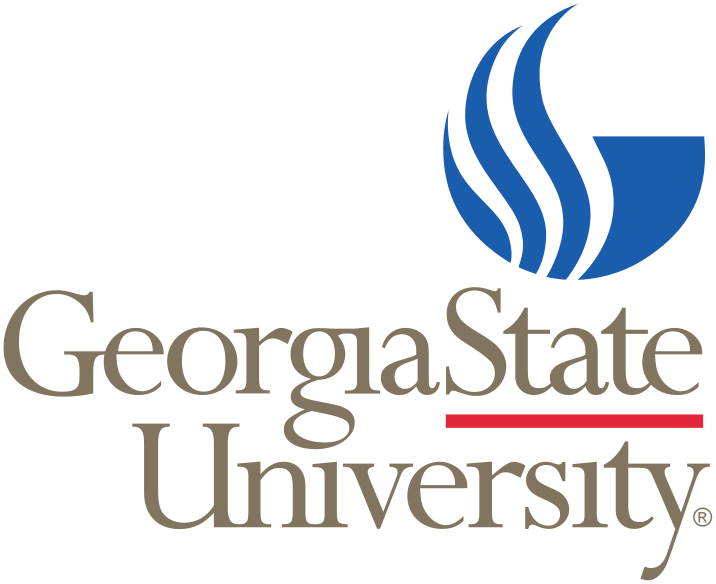
Points: 7
Program Website
Established in 1913 as the Georgia Tech Evening School of Commerce, Georgia State University is a public research university and one of four campuses that make up the University System of Georgia. Students can pursue GSU’s low-cost Bachelor of Arts in Sign Language Interpreting and complete a minimum of 120 semester hours of study. Classes cover areas like educational interpreting, service-learning, Deaf history and culture, and ASL narrative and discourse. Students also develop their ASL-to-English and English-to-ASL interpreting skills. A hands-on, real-world practicum experience is required for graduation.
Degree Options:
Sign Language Interpreting, B.A.
In-State Tuition: $9,112
Out-of-State Tuition: $23,971
Student-to-Faculty Ratio: 23:1
Graduation Rate: 54 percent
13. Texas Tech University
Lubbock, Texas

Points: 7
Program Website
Texas Tech University is a public research university that was founded in 1923 as Texas Technological College. Undergraduates looking for a cost-effective American Sign Language degree can pursue Texas Tech’s affordable Bachelor of Arts in Languages and Cultures with a concentration in American Sign Language/English Interpretation. In addition to completing core major coursework, students take classes in languages and cultures, ASL, Deaf culture, and community interpreting. Students must also complete a course in the observation and interpretation of business practices as well as a seminar and field experience.
Degree Options:
Bachelor of Arts in Languages and Cultures, Concentration in American Sign Language/English Interpretation
In-State Tuition: $9,080
Out-of-State Tuition: $19,040
Student-to-Faculty Ratio: 20:1
Graduation Rate: 60 percent
12. University of Houston
Houston, Texas

Points: 7
Program Website
Established in 1927, the University of Houston is a public research university and the main campus of the University of Houston System. UH undergraduates can pursue an affordable Bachelor of Arts in Sign Language Interpreting that provides both a linguistic and cultural immersion in the classroom setting. Topics of study include ASL, multiculturalism and diversity, simultaneous interpreting, the history and culture of the American Deaf community, and interpreting techniques and skills in ASL/English. ASL courses are taught by deaf professors, and students can interact with professional interpreters and members of the Deaf community. After completing the program’s requirements, graduates are qualified to pass the entry-level Board of Evaluation of Interpreters certification exam.
Degree Options:
American Sign Language Interpreting, B.A.
In-State Tuition: $8,913
Out-of-State Tuition: $8,913
Student-to-Faculty Ratio: 22:1
Graduation Rate: 59 percent
11. University of Nebraska at Omaha
Omaha, Nebraska

Points: 7
Program Website
Founded in 1908 as the University of Omaha, the University of Nebraska at Omaha is a public research university and a member of the University of Nebraska System. Undergraduates looking for a low-cost American Sign Language degree can pursue UNO’s affordable bachelor’s degree in sign language interpreting — the only program of its kind in the state. Through a rigorous curriculum, undergraduates gain fluency in ASL as well as theoretical knowledge and advanced linguistic and cultural knowledge. Graduates are prepared to sit for national certification to become certified interpreters.
Degree Options:
Sign Language Interpreter
In-State Tuition: $7,790
Out-of-State Tuition: $20,764
Student-to-Faculty Ratio: 15:1
Graduation Rate: 48 percent
10. University of Louisville
Louisville, Kentucky

Points: 8
Program Website
The University of Louisville is a public research university and a member school of the Kentucky State University System. Founded in 1798 as Jefferson Seminar, U of L provides an affordable Bachelor of Science in American Sign Language Interpreting Studies. The cheap, 124-hour degree program prepares students to function as qualified interpreters. The curriculum teaches ASL and provides a foundation in the basics of ASL linguistics, the fundamentals of the interpreting process, and Deaf culture and history. It also emphasizes cultural and communicative competence as well as critical thinking abilities.
Degree Options:
American Sign Language Interpreting Studies (BS)
In-State Tuition: $11,656
Out-of-State Tuition: $27,278
Student-to-Faculty Ratio: 14:1
Graduation Rate: 57 percent
9. Framingham State University
Framingham, Massachusetts

Points: 8
Program Website
Founded in 1839, Framingham State University is a public university and a top choice among undergraduates looking for an affordable degree in American Sign Language. Framingham offers a low-cost Bachelor of Arts in American Sign Language degree with concentrations in Deaf studies and ASL/English Interpreting. All students take core language courses in ASL language and linguistics. Specific topics of study depend on the concentration chosen. Both programs provide students with a foundation in ASL and include classes that cover the literature, culture, and history of the American Deaf community within a social justice framework.
Degree Options:
American Sign Language Major
In-State Tuition: $10,520
Out-of-State Tuition: $16,600
Student-to-Faculty Ratio: 14:1
Graduation Rate: 56 percent
8. Piedmont International University
Winston-Salem, North Carolina
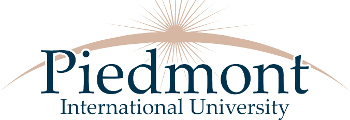
Points: 8
Program Website
Established in 1945, Piedmont International University is a private Christin Bible college and graduate school. PIU offers a low-cost Bachelor of Science in Deaf Studies that focuses on human services needs and communication accessibility of hard-of-hearing, deaf-disabled, deaf-blind, and deaf individuals. The curriculum combines practical hands-on communication experiences with traditional classroom academics. Students can choose from two concentrations: Deaf community services and sign language interpreting. Both programs allow students to gain proficiency in ASL and develop an appreciation of the Deaf community. A strong core of general education and biblical courses is also provided in both concentrations.
Degree Options:
Bachelor of Science in Deaf Studies
In-State Tuition: $9,920
Out-of-State Tuition: $9,920
Student-to-Faculty Ratio: 9:1
Graduation Rate: 36 percent
7. Valdosta State University
Valdosta, Georgia

Points: 8
Program Website
Established in 1906, Valdosta State University is a public institution of higher learning and one of four comprehensive universities that make up the University System of Georgia. VSU offers a 126-credit-hour cheap Bachelor of Science in Education American Sign Language/English Interpreting — the only program of its kind in Georgia. Students develop transliteration and interpreting skills while gaining an understanding of the interpreter’s role in schools. Beyond the classroom, students participate in internships within local public schools, practicum experiences, and field labs. Graduates are prepared to take national and state exams for interpreter proficiency. VSU reports that 95 percent of graduates are employed after earning their degrees.
Degree Options:
Bachelor of Science in Education American Sign Language/English Interpreting
In-State Tuition: $6,410
Out-of-State Tuition: $17,196
Student-to-Faculty Ratio: 19:1
Graduation Rate: 42 percent
6. Utah Valley University
Orem, Utah

Points: 8
Program Website
Utah Valley University is a public university that was established in 1941 as Central Utah Vocational School. Students pursuing UVU’s low-priced Bachelor of Arts in Deaf Studies can choose from a general emphasis or an interpreting emphasis. The general emphasis allows students to develop advanced ASL skills and a solid understanding of the Deaf world. The interpreting emphasis allows students to focus on developing interpreting skills to prepare for certification. UVU also offers a four-year degree in ASL and Deaf studies education as well as a Bachelor of Arts or Science in Integrated Studies with an emphasis in ASL.
Degree Options:
Bachelor of Arts in Deaf Studies
Bachelor of Arts or Science in Integrated Studies; ASL Emphasis
ASL & Deaf Studies Education
In-State Tuition: $5,726
Out-of-State Tuition: $16,296
Student-to-Faculty Ratio: 22:1
Graduation Rate: 35 percent
5. California State University-Sacramento
Sacramento, California

Points: 9
Program Website
Founded as Sacramento State College in 1947, California State University-Sacramento is a public university and the 11th-oldest school in the 23-campus California State University System. CSU-Sacramento offers an inexpensive Bachelor of Arts in American Sign Language and Deaf Studies that takes an interdisciplinary approach to the study of hard-of-hearing and deaf people in U.S. and world societies. The curriculum requires 41 to 44 units of study in the major, covering topics like ASL, fingerspelling, ASL literature, sign language structure and usage, and Deaf history, culture, and community. Undergraduates may combine the major with a minor in education, speech therapy, audiology, or counseling.
Degree Options:
Bachelor of Arts – American Sign Language/Deaf Studies
In-State Tuition: $7,310
Out-of-State Tuition: $19,190
Student-to-Faculty Ratio: 26:1
Graduation Rate: 51 percent
4. Minot State University
Minot, North Dakota

Points: 9
Program Website
Minot State University is a public institution of higher learning and the third-largest university by enrollment in the state. Founded as a normal school in 1913, MSU offers a cost-effective Bachelor of Applied Science in Interpreting and Sign Language Studies that prepares graduates for sign language interpreting in both education and community settings. The high-value curriculum provides a foundation in ASL as well as core skills and knowledge in interpreting. Students also take classes in special education and disability services. Two pathways are available: Path 1 is designed for students who hold an associate degree in interpreting, while Path 2 is intended for those who have not yet completed interpreting coursework.
Degree Options:
Bachelor of Applied Science in Interpreting and Sign Language Studies
In-State Tuition: $7,064
Out-of-State Tuition: $7,064
Student-to-Faculty Ratio: 12:1
Graduation Rate: 46 percent
3. California State University-Northridge
Northridge, California
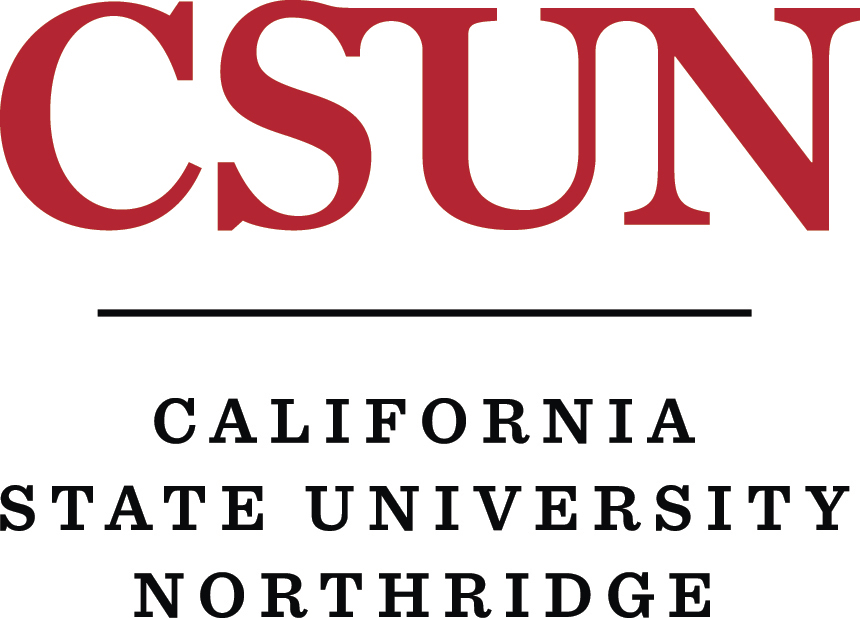
Points: 9
Program Website
California State University-Northridge is a public institution of higher education and the second-largest campus by enrollment in the 23-school California State University System. Established in 1958 as San Fernando Valley State College, Cal State Northridge offers an affordable Bachelor of Arts in Deaf Studies. Core requirements include classes in linguistics, sign language, and other topics related to the social experiences, history, culture, and language of the Deaf community. Students can choose from an individualized concentration or complete one of five other affordable degree concentrations: Deaf Cultural Studies, Deaf Community Services, Pre-Deaf Education, ASL and ASL Literature, or ASL/English Interpreting.
Degree Options:
Deaf Studies, B.A.
In-State Tuition: $6,893
Out-of-State Tuition: $18,773
Student-to-Faculty Ratio: 26:1
Graduation Rate: 54 percent
2. California State University-Long Beach
Long Beach, California

Points: 9
Program Website
Established in 1949 as Los Angeles-Orange County State College, California State University-Long Beach is a public university and the third-largest campus of the 23-school California State University System. CSULB offers a top-value Bachelor of Arts in ASL Linguistics and Deaf Cultures as well as an option in ASL-English interpreting within the major. The low-cost B.A. program requires 50 units of coursework in areas like ASL, the American Deaf culture, and linguistics. Other topics of study include language and culture, global Deaf culture and languages, and modern English grammar. Graduates are prepared for advanced study or careers in social work, teaching, nursing, law, and other service professions.
Degree Options:
Bachelor of Arts in ASL Linguistics and Deaf Cultures
Bachelor of Arts Option in ASL-English Interpreting
In-State Tuition: $6,798
Out-of-State Tuition: $18,678
Student-to-Faculty Ratio: 23:1
Graduation Rate: 69 percent
1. University of North Florida
Jacksonville, Florida
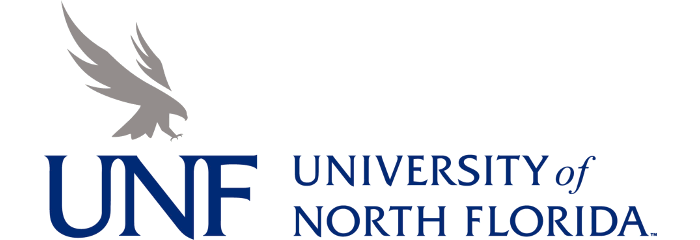
Points: 9
Program Website
Topping our list of the most affordable universities for an American Sign Language degree is the University of North Florida. Established in 1965, UNF is a public university and a member of the State University System of Florida. UNF offers a cheap Bachelor of Science in ASL/English Interpreting that is accredited by the Commission on Collegiate Interpreter Education. The curriculum contains advanced coursework in applied ethics, community engagement, translating and interpreting skill development, and language development. A concentration in Community Interpreting is also available. Courses are offered through a combination of distance and hybrid technologies. Graduates are prepared to sit for national certification administered by the Registry of Interpreters for the Deaf.
Degree Options:
ASL/English Interpreting Bachelor of Science Degree
In-State Tuition: $6,394
Out-of-State Tuition: $20,798
Student-to-Faculty Ratio: 19:1
Graduation Rate: 59 percent
Frequently Asked Questions
What are the Career Options for a Bachelor’s in American Sign Language Degree?
Simply put, the career options are nearly endless with a Bachelor’s in American Sign Language. After all, ASL can be applied to almost any industry in some way. Therefore, qualified students with knowledge and experience in ASL are often in very high demand. Interpreters are needed in government agencies and institutions, business meetings, theaters, medical offices, hospitals, and schools as well as at social and community events. Some popular career options to think about when considering an undergraduate degree in ASL:
- ASL/Sign Language Interpreter
- Medical Interpreter
- Social Worker
- Deaf Educator
- Freelancer
- Child Care Worker
- Employment Counselor for the Deaf
In addition to being fluent in ASL, there are many other skills that good interpreters need, regardless of their specific position or employer. Knowledge of grammar and syntax, as well as a strong memory and solid hand-eye coordination, are a must. If one is going to pursue a career involving interpreting for people, around people, and with people, it makes sense that he or she should have outstanding people skills. He or she also needs to be caring, professional, respectful, and be able to actively listen. Interpreters should have the ability to assess the conversation and adapt their services based on the client’s needs. While fluency is necessary, interpreters also need to understand the ethics and principles behind interpretation, how to convey both literal and implied meaning, and how to quickly switch between languages.
What is the Salary Potential for a Bachelor’s in American Sign Language Degree?
As we have seen, undergraduates who earn a Bachelor’s in American Sign Language degree can work in nearly any industry, in almost every position. Therefore, it is impossible to narrow down salary potential to one specific career. Earnings also depend on many factors like the type and size of the employer as well as education, experience, skill, specialty, language, and certification. However, we dug a little deeper and consulted with the U.S. Bureau of Labor Statistics (BLS) to gather some information about one of the most popular career options that one can attain with a bachelor’s in ASL: an ASL interpreter.
The BLS reports that interpreters and translators earned an average yearly salary of $49,930 per year, or $24 per hour, as of May 2018. The median annual wages for these professionals in the top industries in which they worked were:
- Technical, scientific, and professional services: $55,450
- Government: $54,940
- Private, local, and state hospitals: $49,560
- Private, local, and state educational services: $47,940
Employment of interpreters and translators is expected to grow 19 percent from 2018 to 2028, much faster than the average for all occupations. Although this statistic also includes interpreters and translators for spoken languages, the demand for ASL interpreters is expected to increase due to the growing use of video relay services. These allow people to use a sign language interpreter and conduct online video calls.
What Will You Learn About in a Bachelor’s in American Sign Language Degree Program?
Generally speaking, there are two ASL-related degree tracks that students can pursue: ASL language and Deaf culture or ASL/English interpretation. The first program is designed for students with little to no knowledge of ASL. These students are interested in learning more about ASL and becoming more familiar with Deaf society, Deaf culture, and other aspects of the Deaf community and deafness. The second program helps to prepare undergraduates for a career in ASL/English translation and interpretation. In some cases, these programs may also prepare undergraduates to sit for an ASL/English interpreter certification examination.
Bachelor’s degrees in ASL language and Deaf culture allow students to develop fluency in ASL. They also become familiar with Deaf culture, the Deaf community, and the unique characteristics of each. While these four-year programs do not typically prepare students for certification and/or careers as ASL/English interpreters, students can apply what they have learned in careers that involve supporting or working closely with the Deaf community.
Undergraduates pursuing the ASL/English interpreting track may wish to choose a program that is not only regionally accredited but also accredited by the Commission on Collegiate Interpreter Education. Coursework in ASL/English interpreting allows students to become fully fluent in ASL and learn the ethics, standards, and methods of interpreting. These four-year programs may also include work opportunities and internships with local Deaf organizations or communities. After completing the bachelor’s requirements, students may be eligible to sit for the National Interpreter Certification Exam administered by the Registry of Interpreters for the Deaf.
As you narrow down your options, remember to consider the entire program as a whole instead of focusing solely on the cheapest programs. We hope that our list of the 40 best affordable American Sign Language degree programs serves as a valuable resource to help you select the best possible program for your academic needs and professional goals.
AS Staff
This concludes our ranking of the top 40 best affordable American Sign Language degree programs.
Other Rankings of Interest:
10 Most Affordable Ph.D. in English Language Learning Online
15 Best Affordable English/Language Arts Degrees Programs (Bachelor’s)
50 Best Affordable Online Early Childhood Education Degree Programs (Bachelor’s)
The 50 Most Affordable Colleges with the Best Return
30 Best Affordable Online Bachelor’s in Special Education and Teaching
25 Cheapest Online Schools for Out-of-State Students (Bachelor’s)
40 Best Affordable Accelerated 4+1 Bachelor’s to Master’s Degree Programs
40 Best Affordable One-Year Accelerated Master’s Degree Programs
The 50 Best Affordable Business Schools

 The Best Colleges
The Best Colleges The Lowest Costs
The Lowest Costs The Highest Returns
The Highest Returns